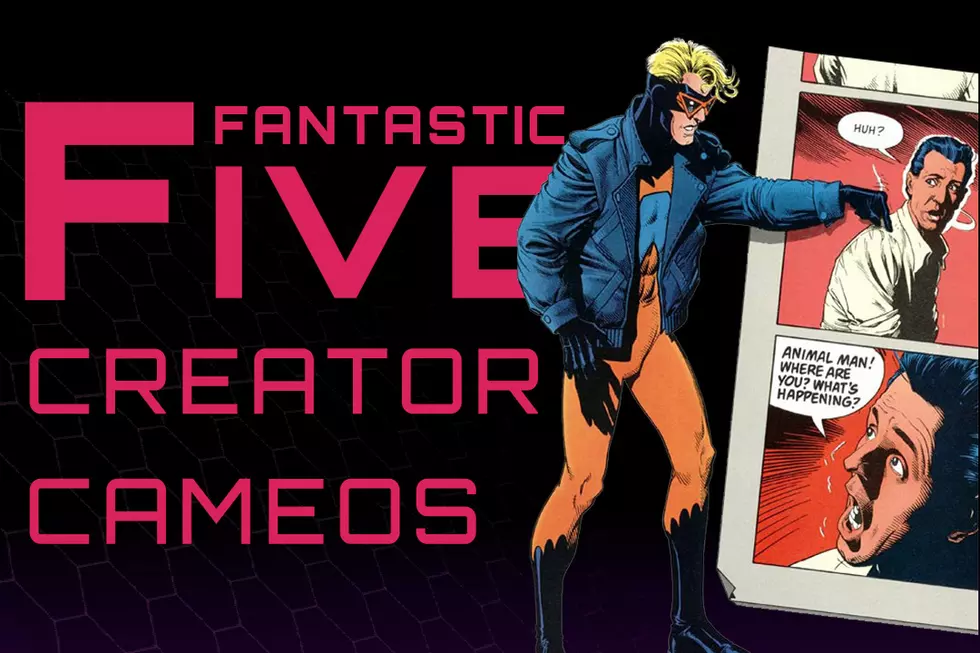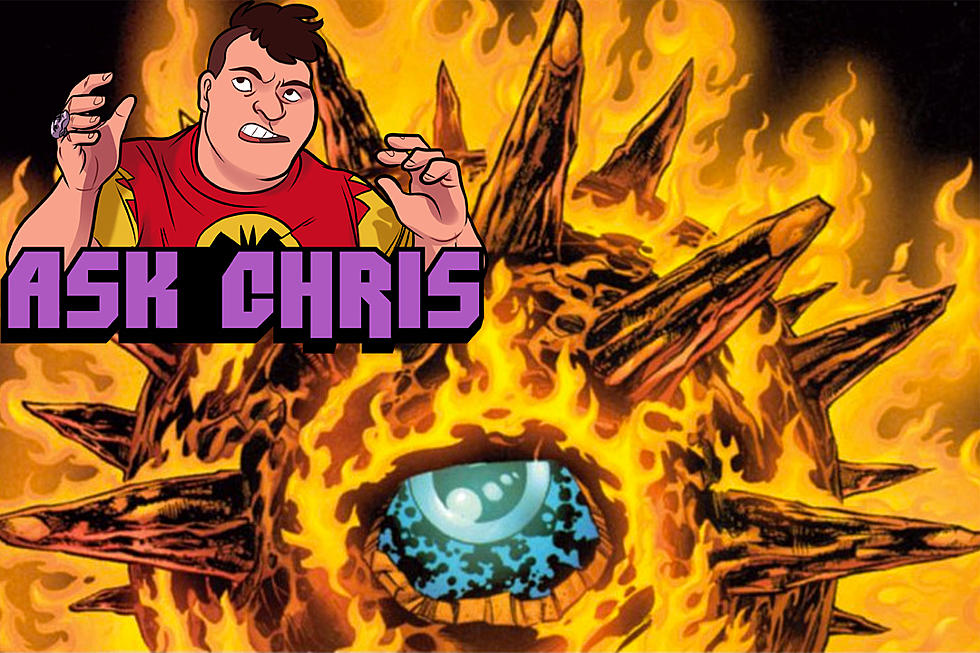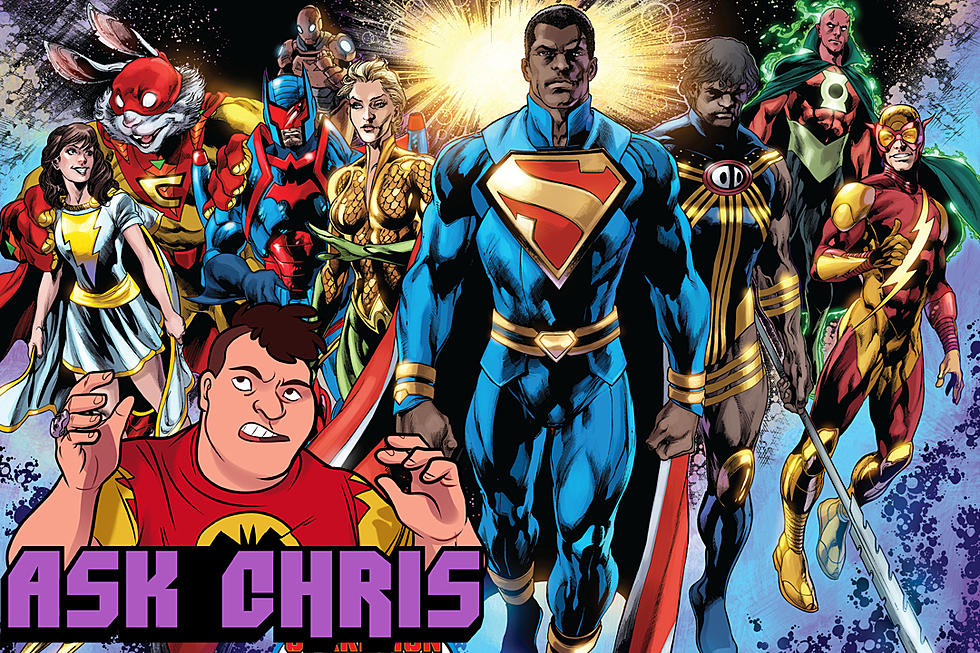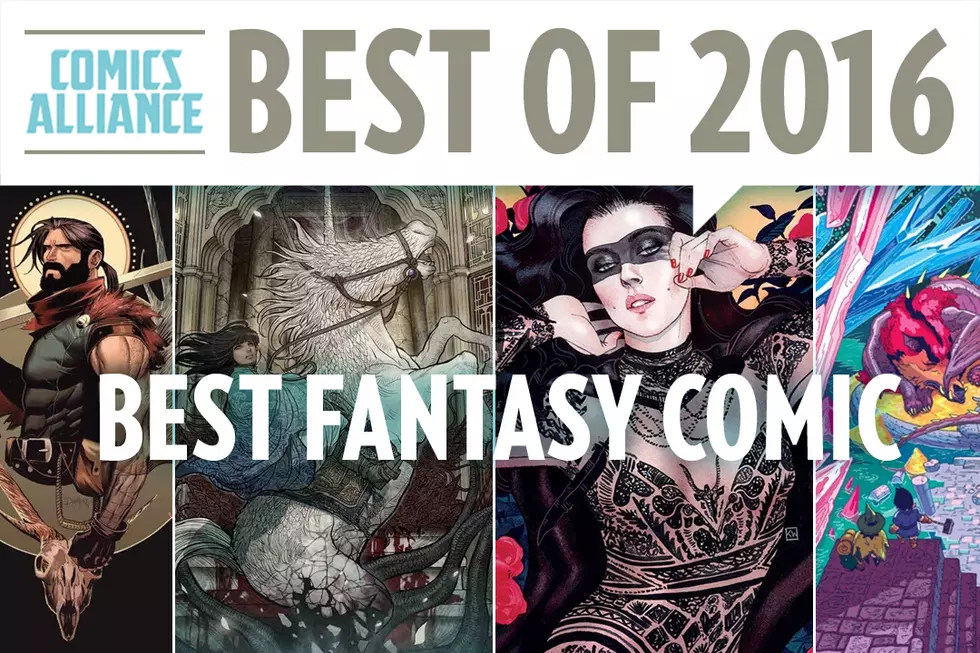![‘Supergods': The Secret Superhero Origin of Grant Morrison [Review]](http://townsquare.media/site/622/files/2011/07/supergods-1311614536.jpg?w=980&q=75)
‘Supergods': The Secret Superhero Origin of Grant Morrison [Review]

Grant Morrison's recently released book Supergods: What Masked Vigilantes, Miraculous Mutants, and a Sun God From Smallville Can Teach Us About Being Human was certainly initially marketed as "Grant Morrison's history of superheroes." And for the first third of the book, that's the case, and it's an immensely readable, well-researched, passionate and funny look at the origins of the major superhero franchises and figures that continue today. After that, however, Morrison transforms it into something unexpected and perhaps even more interesting: an autobiography.
As the narrative of the evolution of superhero comics catches up with Morrison's own history with the genre and medium, the focus of the book shifts from a history of superheroes to a history of Grant Morrison's relationship with superheroes, and the undeniable, immense influence they had on the course of his life. Call it Grant Morrison: Secret Origin. Which is not to say the early focus on superhero history isn't quite interesting on its own; if nothing else, it gives the incredible uncredited Batman co-creator Bill Finger his due and his chapters on Captain Marvel (the Fawcett SHAZAM!-powered original) and Wonder Woman are filled with the typical semiotic Morrison insight that powers his best work.
Which is not to say the early focus on superhero history isn't quite interesting on its own; if nothing else, it gives the incredible uncredited Batman co-creator Bill Finger his due and his chapters on Captain Marvel (the Fawcett SHAZAM!-powered original) and Wonder Woman are filled with the typical semiotic Morrison insight that powers his best work.
His deconstruction of Joe Shuster's cover of the original Action Comics #1 is compelling, and he manages to discuss the issue of creator ownership in the Golden Age with a frankness that finds a middle ground between the points of view of the Siegel and Shuster families and his corporate bosses at DC Comics. It's also easy to see the germs of ideas he used for stories; his discussion about Batman, for example, focuses heavily on his excessive toxin/drug use due to deathtraps and mad scientist villains, a theme that played heavily through the first part of his Batman run.
And while novices to the history of the superhero genre will certainly find this book an effective primer, as the founding fathers fade out of view and more recent creators like Denny O'Neil and Jim Starlin fade in, it becomes impossible for Morrison to separate analyzing those books from analyzing how those books affected his life. Morrison was an avid reader during the Bronze Age of comics, and his discussions of the books he read in that era -- such as Jim Starlin's Captain Marvel -- are interspersed with very frank autobiographical interludes about such decidedly personal topics as his father's marital infidelity, living on the dole, breaking up with his first girlfriend and being unable to get laid at an all-boys high school.
Indeed, rather than a new scholarly treatise ready for distribution in university bookstores and inclusion in syllabi, Supergods is a shockingly frank look at one of comics' most enigmatic figures, and a very effective companion piece to Patrick Meaney's excellent documentary on the writer, Grant Morrison: Talking With Gods.
Morrison, as he admits in the book, is a man who goes through stages. Indeed, he seems to subscribe to -- or at least claims to make a decent amount of bank off of -- Iain Spence's Sekhmet Hypothesis, an apparently-nearly-impossible-to-find-online theory that the eleven-year cycle of the sun's magnetic field influences cultural patterns in the form of a constantly swinging pendulum between "punk" and "hippie" extremes, uppers and downers, materialism and spirituality. This certainly aligns with Morrison's experience being straight-edge in the '80s, experimenting with every drug and experience in existence in the '90s, and finally the new, settled-down, corporate-cool Grant Morrison whose solar cycle is presumably coming to an end this year, as we enter what he posits will be a new psychedelic age.
 All of this is in the book, as the latter third of the book synthesizes the elements of analysis and autobiography so Morrison discusses the recent history of superhero comics in which he was so hugely influential. Any discussion of superhero comics in the '90s and '00s is incomplete without mentioning Morrison's considerable contributions, and he does a good a job as is reasonably possible to discuss that era without tooting his own horn to the point of cacophony.
All of this is in the book, as the latter third of the book synthesizes the elements of analysis and autobiography so Morrison discusses the recent history of superhero comics in which he was so hugely influential. Any discussion of superhero comics in the '90s and '00s is incomplete without mentioning Morrison's considerable contributions, and he does a good a job as is reasonably possible to discuss that era without tooting his own horn to the point of cacophony.
After devoting the first two thirds of the book to the history of superheroes and his own history with themselves, the final third is largely about Morrison's history other creators. A segment discussing prominent Scottish comics writer Mark Millar segment in particular carries a current of bitterness and regret, while his discussion of Alan Moore focuses on Miracleman and practically evaporates after the publication of Watchmen from 1986 to 1987.
I honestly don't know if the more personal ties Morrison creates between his personal world and history and the world and history of superheroes will make it more or less relatable to a wider audience, but it's certainly a feast for fans of the writer, whether casual or devoted, who will find this a hugely compelling read that intensely and honestly analyzes the relationship between Grant Morrison's personal development, creative development and the history of superheroes, and I enjoyed the hell out of it.
More From ComicsAlliance









